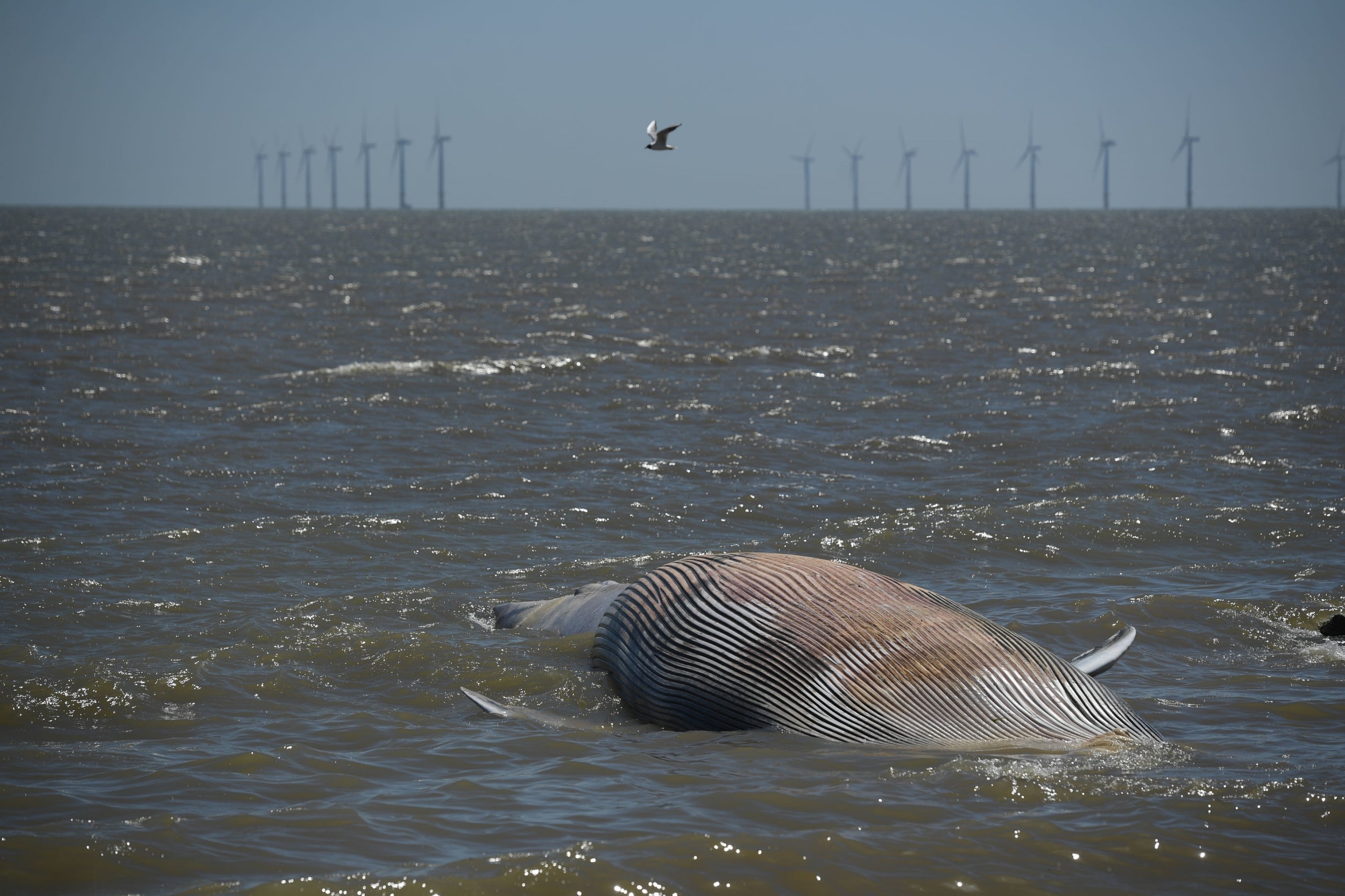Operation underway to remove 40ft dead whale from Essex beach
The whale was first spotted by locals at around 5.30am on Friday
Your support helps us to tell the story
From reproductive rights to climate change to Big Tech, The Independent is on the ground when the story is developing. Whether it's investigating the financials of Elon Musk's pro-Trump PAC or producing our latest documentary, 'The A Word', which shines a light on the American women fighting for reproductive rights, we know how important it is to parse out the facts from the messaging.
At such a critical moment in US history, we need reporters on the ground. Your donation allows us to keep sending journalists to speak to both sides of the story.
The Independent is trusted by Americans across the entire political spectrum. And unlike many other quality news outlets, we choose not to lock Americans out of our reporting and analysis with paywalls. We believe quality journalism should be available to everyone, paid for by those who can afford it.
Your support makes all the difference.An operation is underway to remove a 40ft long dead whale from a beach in Essex.
The large mammal, which is believed to be a fin whale, washed up on the shore at Clacton-on-Sea on Friday and the area has since been cordoned off.
It was first seen in shallow water at around 5.30am, locals said.
Essex Police has advised the public to stay away while authorities plan on how to remove the whale.
The force said it is working organisations, including the “Big Blue Ocean Cleanup”, to remove it.

Essex Police wrote in a Facebook post: “Sadly a 40ft whale has been washed up on Clacton this morning.
“We are currently in attendance with other organisations and discussions are under way on how to remove her.
“The area is cordoned off and the public are advised to stay away. #SocialDistancing #StayAlert."
A spokesperson for the Maritime and Coastguard Agency said officers were called to a report of a “large object” on the beach, later confirmed to be a dead whale, just after 5.30am.
“Removal of the carcass is the responsibility of the beach owner,” the charity said in a Facebook post.
“In the meantime we strongly advise people to avoid going near it as there is a risk of contracting an infection from contact with its bodily fluids or the body itself.”
Fin whales are the second-largest mammals on Earth after the blue whale, and are classed as an endangered species.
They can grow up to 80ft in length, but the British Divers Marine Life Rescue charity said this particular whale was “actually rather small for the species” and was therefore likely to be a juvenile.

Join our commenting forum
Join thought-provoking conversations, follow other Independent readers and see their replies
Comments